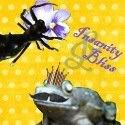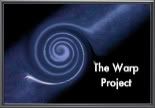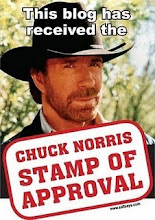why i love k, by lily-elaine hawk wakawaka
in her book COMMUNION bell hooks discusses the feminist revolution of the 1960s and 70s. she was one of the many women at the time at the forefront of instigating significant change in the united states. a change that opened up far more possibilities for women in the work force, and in other choices of the social world as well. however, she also discusses the failures of the feminist revolution--where it's limit took effect. while women gained greater opportunities and freedoms in regards to labor, they did not in most cases gain greater freedom at home, hooks points out. this reality is true in several ways. strictly speaking there is a greater awareness in the united states and canada of the idea that work at home can be shared or split between men and women, though in many cases, as hooks describes, women came home to work "the second shift" (do all the housework too). it is important to point out though that in consideration of something like housework we are still simply discussing a question of labor. what hooks wants to point out though is that it is in non-labor terms that feminism failed. most men realized, hooks claims, they wanted women to work too. it made things easier in all kinds of ways. however, women did not necessarily gain greater freedom in terms of openness and connection with the men in their lives.
while it became understood that women could work, other aspects of "a woman's role" did not so readily shift. hooks describes how, as a result, many women find themselves with greater confidence and more ability in their social lives, or their works lives, but still frustrated at home. feminism succeeded in shifting how we understand labor, and failed to help us shift how we understand emotional connection with others, or the possibility of love as a source of freedom in commitment.
two years ago i was lucky enough to meet k in an incredibly challenging, rather esoteric exploration of core philosophy--the study of knowledge. she showed herself to be a passionately committed student, determined to rise to the challenge of academic life, both in terms of fulfilling requirements with excellence and in terms of improving her thinking through study and practice. the next semester i was lucky enough again to share a class with k. this class was even harder in that it was another highly demanding philosophy class in terms of the texts and ideas that would be studied, but it was even more demanding in that the class design and topic were situated as to make the study intensely personal. it was a feminist philosophy class on sex, love, and the self--an examination of how we understand, and how we choose and act in relationships, with the understanding that to better grasp freedom in such a place one must also consider how we understand, and how we choose and act as our selves. again, k proved herself to be a student determined to rise to the challenges of academic life. but even better, she proved herself to be someone committed to considering such challenges in deeply personal ways.
k is stanchly and proudly feminist. the life of a feminist is a bit like the little kid in the story about the emperor with no clothes--you live in the uncomfortable clarity of seeing how others are buying into ludicrous untruths. the difference is that, unlike the story of the Emperor, his clothes, and the kid that can see clearly, what the feminist sees clearly includes how the ludicrous untruths do great damage to themselves and people in general. in this way, feminism brings a new vision to dynamics of the social world. it can be enough to make a person wish sometimes that they didn't have such clarity. however, as hooks discusses, feminism isn't just about social or political (labor based) realities. it's also about making things work at home, even if the feminist movement hasn't yet succeeded at shifting that front.
k readily lives in the struggle of that feminist limit--that is, the struggle of trying to figure out how the hell to live feminism as a personal freedom at home, in love, and with feeling. it is a very real struggle. it is personally painful to push through and live in, as i've said. to claim someone readily lives in the struggle is not necessarily to claim it is what they would choose for themselves--after all we feminist masochists are not masochist at all. we'd much rather the world together had shifted to love through freedom in commitment too. it is also not to claim they are happy in it. what i am saying is that k is someone that somehow is at home in this struggle. what the hell do i mean by that?
as i discussed a week or so ago in my introduction to daphne guiness, camus discusses the paradox of the absurd as an irreconcilable, irresolvable tension between two true but conflicting realities--we will die and so our lives will be as meaningless, and we are alive and so our lives have meaning. to live as someone that understands camus well, then, is to be at home in the irresolvable conflict of facing your mortality and being passionately alive because of it. to be at home in such a reality isn't to be comfortable all the time, nor is it to want the tension that state suggests. it is to understand instead that such tension is the truest expression of yourself and that what that means is you claim your life and how your choices define what that life will mean, and, as a result too, who you will be.
the feminist conundrum has a similar form to it. that is, the world operates in restrictive (patriarchal) norms that constrain women personally even while in the last few decades giving them greater freedom of labor. to rise to the occasion that is that restriction, and strive to fulfill the remaining shift that is greater freedom personally, through love, at home, and in emotional connection requires seeing how the very process of love, which is a form of committing yourself to someone (and there are many ways to enact such commitment) is actually a process of freedom at exactly the same time. the paradox appears through this notion that one gains freedom through the very act of choosing the restrictions of binding yourself in some sense to another person through love. one cannot love in any genuine sense without also enacting forms of attachment. it is through such attachments that the vision and understanding of the other that find themselves in love can take shape. short of that we are just having feeling about someone. (though, do not over read what i am saying here. i am neither denying the possibility of love igniting rather spontaneously, nor am i claiming that we must bind ourselves to people that might unhealthily restrict us. i am not claiming that to be any form of freedom and i believe bell hooks would see such unhealthy attachment as being a form of relationship in patriarchy, not love in freedom.)
now, again, here is what i am saying about k. i love k for her dwelling in that shifting point where feminism becomes not merely political or social but personal. i love her for her living at home in the feminist conundrum, whether she has really gained understanding of it or not. i love her for her determination to strive forward in a feminist commitment even with the truth that there is a great personal pain that cannot help but exist because of it--pain from seeing how untruths do real damage to people, and pain from facing the challenge of making your home life (whether in a relationship or on your own) live out your feminist commitments in genuine freedom. k is a person deeply committed to what she believes is right. she is willing to suffer the binding reality of such duty in order to fulfill the demands of it. may her heart be ever bolstered. may her path be smooth. may she be supported by those others of us also finding their home in this tension. may she be one of the ones that follows feminism forward to its greatest implication--love as an act of freedom.
No one knows what the body can do. -Spinoza
Friday, July 8, 2011
Subscribe to:
Post Comments (Atom)














No comments:
Post a Comment